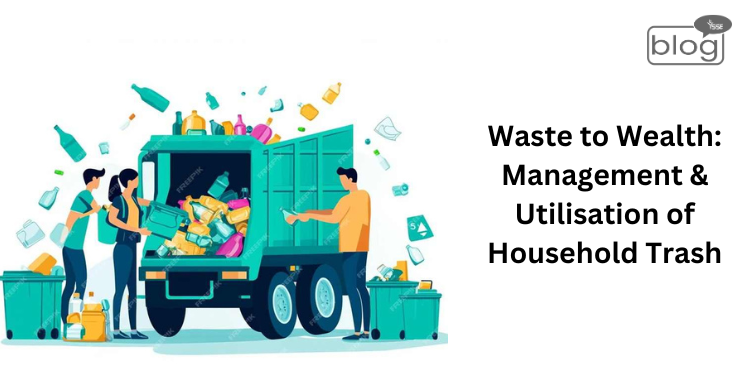We have damaged our beloved earth in more than one way. This has caused global warming all around the globe. One of the main culprits of global warming is waste which results in environmental pollution.
By now, we can already feel how much waste production is related to our environment and the earth as a whole. Turning this unwanted waste into new income opportunities is beneficial and also economically good for us.
In our households, waste is generated every day. Cans, plastic bags, metal & glass, and hazardous waste such as electrical light bulbs, and batteries are non-biodegradable waste. Paper, cow dung, peels, and regular household food waste are biodegradable waste. According to some research, every individual produces just over two kilograms of solid waste every single day. This sums up to 800 kilograms per year. This huge amount of waste can cause environmental pollution and greenhouse gas emissions if they are not managed properly.
Effective Strategies for Waste Management:
1. Reduce, Reuse & Recycle: We need to use this 3R concept to decrease waste.
Reduce: We can buy products in bulk to avoid package waste. We can encourage people to avoid using single-term plastic bags to minimize waste. We should use recyclable packaging to reduce waste.
Reuse: We can encourage people to use glass jars and containers for storage use. They can also be utilized for crafts.
Recycle: We can locally recycle glass, paper, and cardboard. Electric products can recycled through recycling centers.
2. Composting: Composting has been done for ages in our country. We can use our organic household waste, such as green waste, and food waste for composting. Composting converts these wastes into nutrient-rich compost. They are good for the soil. This also helps in earning money.
3. Upcycling: This means creating higher-value products from waste. For example, old tires can be used as garden planters, or jars can be used for art. This method reduces waste and also encourages creativity and innovation.
Economic and Environmental Benefits: This initiative has great benefits. They are:
1. Economic opportunities: New jobs and businesses are created. Recycling and upcycling industries have labor space. Many high-tech recycling machines need skilled workers to operate them. This all adds more workspace and more human labor.
2. Environmental impact: Landfill and open burning are reduced. Both of them are responsible for greenhouse emissions. Composting is also used as an alternative to natural gas. Their use also reduces the burden on natural resources. All of them might seem ineffective, but if we count them as a whole they play a pivotal role in mitigating the global warming effects.
3. Healthier Communities: Waste pollutes the environment. If they are not handled properly they create a foul odor and spread disease. These are all the negative effects of not managing waste properly. But if they are handled properly, the community will be waste-free. Thus, citizens can enjoy a cleaner, healthier living environment.
Every problem can become an opportunity. Management and utilization of household trash need us to see waste as an opportunity rather than a problem. By adopting these said methods we can transform waste into opportunity.
Click here to read more blogs like this.
Writer,
Samsul Alam Roni
Intern,
Content Writing Department,
YSSE.

